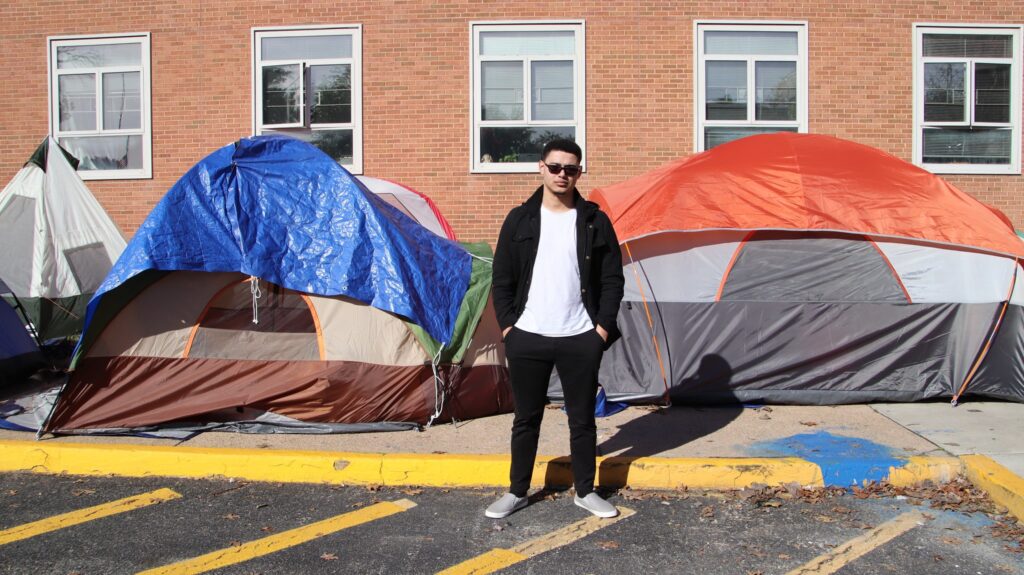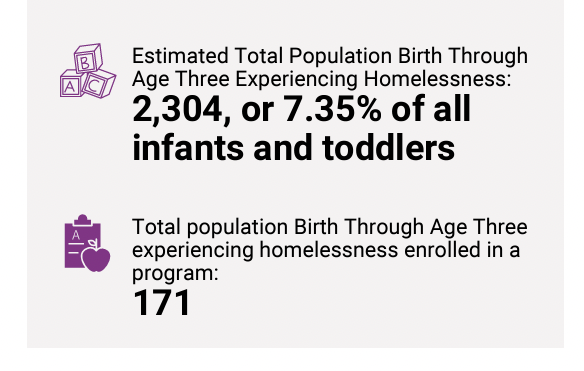Ever since she was told not to return to campus in March 2020 due to the pandemic, Jamaica Kalika had completed her Howard University classes from home in the San Francisco Bay Area. She planned to do the same for this school year until Howard unexpectedly announced on June 4 that most classes would meet face to face on campus.
Kalika, in her third year at Howard, had to scramble to find housing. Usually first and second-year students receive preference for on-campus housing, but her adviser helped her find a place on campus. Kalika signed a housing contract and moved across the country. Then, early on August 23 — the first day of the semester — she received an email saying all of her classes would be remote.
[Disclosure: Jamaica Kalika is also a Fall 2021 intern with Street Sense Media]
The last-minute change of plans by Howard complicated an already tough situation for student housing. Howard officials acknowledged in August they were expecting a housing shortage as the university anticipated a large first-year class, according to the Washington Post.
“A lot of students were experiencing housing instability going into this semester, not knowing where they would live, or if they needed to move, or if they were not going to be allowed on campus,” Kalika said. “I think that’s very indicative of just the entire situation and how Howard treats and expects to treat its students.”
Kalika said that even though she has housing, her dorm had a cockroach problem and other dorms have even worse conditions. Social media posts show mushrooms and mold growing in campus housing units. One video shows a unit flooding as pipes spill water.
In protest of the university’s response to student concerns about housing conditions, students have occupied the Armour J. Blackburn University Center, a building with student study areas and on-campus conference facilities. Friday will mark a full month of sustained protest, which started Oct. 12. Some sleep in tents outside, while others, such as fourth-year Taiye Martin, sleep in the building.

Although housing conditions sparked the protest, Martin said it’s about more than housing. The students are demanding accountability for and transparency from the administration, and they want to see the restoration of student and faculty representatives with voting power on the Howard Board of Trustees. They question why they’re facing these issues even though the university has shattered its fundraising record. The university received more pledges and donations in the first half of 2021 — $140 million — than all funds it was able to raise between 2010 and 2019, according to the Washington Business Journal.
Nearly $20 million will support the faculty appointments of Nikole-Hannah Jones, who created the New York Times’ “The 1619 Project,” and Ta-Nehisi Coates, a former journalist with The Atlantic and a Howard alumnus. These appointments, plus the remembrance of actor and Howard alumnus Chadwick Boseman as well as the election of Howard alumnus Kamala Harris to the vice presidency, have brought significant celebrity attention to the historically Black university in the last two years.
Shortly after the occupation began, the administration threatened students who remained in the building with expulsion from the university, according to an email sent to students six days after the occupation began. The administration has consistently downplayed the severity of the students’ concerns.
“Since Oct. 12, President Frederick has participated in meetings with students engaged in the protest at the Blackburn Center on several occasions and consistently meets with their legal counsel,” the university said in a statement. “Students, parents, alumni, public officials and the media have also been invited to tour our residence halls and see the conditions for themselves.”
The university has invited some students to meetings with Frederick, administrators, and housing officials, but only to speak on concerns. The Howard Board of Trustees does not have any student, faculty or alumni representatives with voting power.
In a tweet, the university blamed the layoff of Sodexo dining hall workers on the student protesters. Kalika said this is an example of how the university puts a lot of the blame on the students. She described some of the communications from administrators as “gaslighting” — meaning intentionally lying — and “terribly inappropriate.”
“I view it as very immature coming from an institution like that,” Kalika said.
As of Tuesday morning, nearly 4,500 people have signed a petition calling for Howard to cancel its 40-year, $144 million contract with Corvias, a private company that manages housing for higher education institutions and the military. The company is facing a lawsuit for its management of housing facilities at Fort Bragg in North Carolina. In May 2020, considering the upcoming fall semester and the money it stood to lose if students did not need campus housing, Corvias told the University System of Georgia its Board of Regents did not have the authority to unilaterally close student housing, even for safety reasons, according to Inside Higher Ed.
Kaedriana Turenne, a Howard student who resided in Baldwin Hall, sued the university and Corvias, claiming they violated the D.C. Housing Code and the Air Quality Amendment Act.
According to the lawsuit, which was filed in D.C. Superior Court on Oct. 26, Turenne visited the emergency room after experiencing swollen tonsils, headaches, cough and sinus pain. A doctor told her the symptoms were “consistent with mold exposure” and would worsen as long as Turenne stayed in that environment.
Howard’s agreement with Corvias is private, and it’s unclear how much unilateral control the university has over student housing run by the company. The Hilltop, Howard’s student newspaper, reported that the university president told student leaders in October that he couldn’t divulge information about the university’s partnership with Corvias.
Room and board at Howard University costs differ by building and unit type, but singles range between $5,000 and $6,000 per semester. Howard promised Corvias all revenue from the four properties it manages, according to a 2019 financial statement.
Howard students looking off-campus for housing are unlikely to find cheaper options. Students would need to agree to annual leases and possibly pay much more per month to live walking distance to their classes. The D.C. Housing Authority has said fair market rent for a one-bedroom in LeDroit Park, where Howard is located, is $2,467 per month including utilities. Housing trends site RentCafe estimates a similar amount is the average rent paid for the area, but not including utilities. For a four-month semester, that comes out to almost $10,000.
Martin, the student protester, said they feel empowered by the support they have received from alumni, other students, and faculty. They have also received support from politicians and celebrities, including Rep. Ayanna Pressley and Sen. Elizabeth Warren, both of Massachusetts, and the Rev. Jesse Jackson, who visited Blackburn to speak to the students.
“We feel that support, and it makes us confident that we have an opportunity that nobody else has had at Howard. We’ve had a lot of protests, but they haven’t been like this,” Martin said. “How can we be the ones who have this opportunity and let it go to waste, and we let this continue and waste all that potential?”
The university has a legacy of student activism. In 1989, students occupied the administration building to protest the naming of Lee Atwater to the Howard Board of Trustees, according to the Associated Press. Atwater was chairman of the Republican National Committee and an adviser to Presidents Ronald Reagan and George H.W. Bush who made racist comments in an interview explaining the “Southern Strategy” of appealing to white voters in the South.
Atwater resigned from the board, and so did then-Howard President James Cheek. Although Atwater’s nomination sparked the protest, the students were also concerned with housing, course registration and financial aid, according to the Washington Post.
In 2001, The Hilltop ran two articles on the same front page concerning mold growth and a housing shortage, according to The Hilltop’s archives.
“But with campus housing becoming increasingly difficult to obtain, students are urging the University to renovate and re-open the (Bethune) dormitory,” the housing shortage article states.
Housing issues surfaced again when, in 2018, students occupied the administration building for nine days after the housing portal crashed and financial aid misconduct came to light, according to Street Sense Media’s previous reporting. Housing conditions were a concern then, too, as the spring semester was delayed because campus buildings had no heat. The occupation ended when most of the students’ demands were met, including changes to the sexual assault policy, the creation of a food bank, and a review of weapons policies for campus police, NPR reported.
Martin said he has had issues with housing and the financial aid department in the past and that he has heard similar stories from other students. He said those experiences are “just ridiculous” given Howard’s “illustrious” reputation and alumni. He said the university is “directing the funds towards things that aren’t necessarily at the core of the college experience” despite its record wave of donations.
MacKenzie Scott, the ex-wife of Amazon founder Jeff Bezos, donated $40 million to the historically Black university in July 2020. Eddie and Sylvia Brown, a couple who met at the university, recently gave $5 million, according to an Oct. 12 Howard news release. That was the largest alumni donation ever.
Despite the administration’s response to student concerns, Martin said he doesn’t regret going to Howard. He said that if, before he went to the university, he knew everything he knows now, he would still attend. He said going to Howard changed him forever.
“That’s also why we’re here, it’s because we see that even with all this going on, lives are still being changed for the better,” Martin said. “Imagine what it could be if instead of having to focus on all of this and fixing this stuff, we could focus on amplifying those positive aspects and facilitating more of that.

“I mean, Howard already changes the world. We already put out something, I think it’s like 40% of the Black judges in the country, you know, a certain percentage of the Black lawyers, come from just Howard University. Imagine if we could just focus all our energy on that instead of fighting with the administration that is inhibiting that.”








